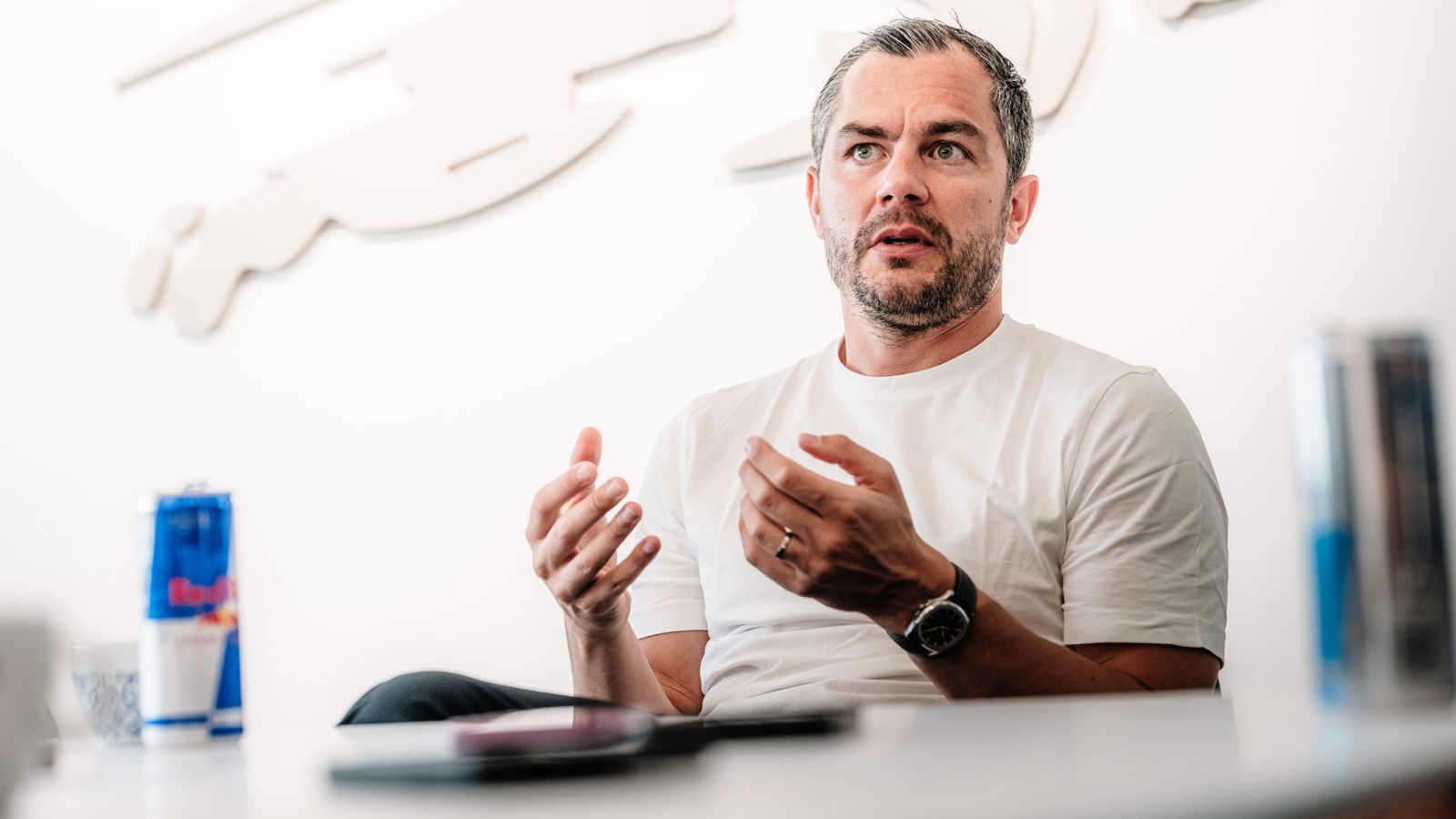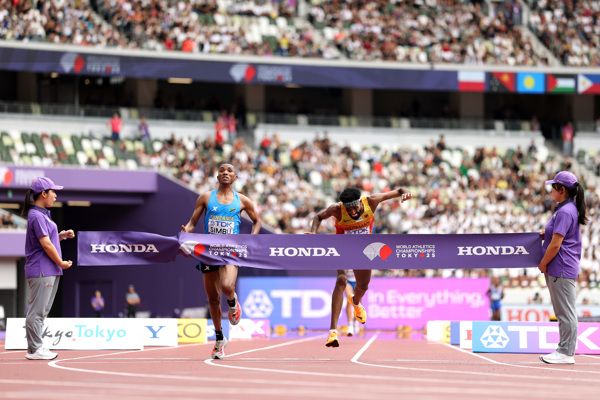By Sky Sports
Copyright skysports

The return of European football would normally be a source of excitement for RB Leipzig, having been involved in continental competition for each of the past eight seasons. It is different this time around. For Marcel Schafer, it is even physically painful.
“On the one hand, it should for a motivation for us to do the extra mile to qualify next season. On the other hand, if I am honest with you, it is a little bit of an issue in my stomach to sit down and just watch other teams when they play in Europe.”
For Leipzig and Schafer, their managing director for sport, it has been a summer of reflection. Success has been steady since their promotion to the Bundesliga in 2016. But last season was a shock to the system as they missed out on the top six for the first time.
Got Sky? Watch now on the Sky Sports app📱Not got Sky? Get instant access with no contract📺
“Maybe we lost a little bit our DNA,” he says. Difficult conversations were had among Red Bull’s high-profile leadership group that includes Jurgen Klopp and Mario Gomez. “The main target was to get back to the roots of what makes RB Leipzig so successful.”
There has long been an irony in German football that the club viewed by many as the most inauthentic in the Bundesliga given their controversial beginnings have actually had the clearest vision. While erstwhile giants floundered, their identity was always evident.
“Young, hungry, high-potential players.” It is a phrase Schafer repeats often during a lengthy conversation with a select group of journalists. “We are looking for a team who plays a high intensity with the ball but especially a high intensity against the ball.”
It is the clarity of that pressing game that gave Leipzig an edge for so long. They knew the profile of player they needed. Those players knew what was expected. But the demand for progress muddied the vision. A possession game came to be seen as the next step.
Asked by Sky Sports, where things went wrong and Schafer talks of the need to “confirm the philosophy” of the club. “Red Bull style means high intensity against the ball, high pressing, counter-attacking,” he stresses. They began to move away from that.
“If you are one of the top teams, you need to find solutions with the ball. But we cannot change the whole philosophy and just say, okay, now we are a team who just want possession, possession, possession. We are not a team like that. It is not authentic.”
Schafer accepts that the possession game needs to be part of it. “Against teams who defend deep, we need to find solutions for closed spaces.” But not at the cost of their out-of-possession game. “Last year, we had huge issues with that,” he concedes.
Ole Werner’s arrival as head coach is aimed at correcting that but it is Klopp’s presence that is perhaps most intriguing. His remit as head of global soccer at Red Bull is broad. “He is responsible for all the teams, for the playing identity, for the playing philosophy.”
On the field, there is what Schafer calls “a match” but it is off the field, where Klopp’s role includes persuading players to join the project, that the greatest gains could be made. His reputation in the game is such that it is giving Leipzig an edge in negotiations.
Speaking to Johan Bakayoko recently, the young forward signed from PSV, he revealed that he was interested in joining Leipzig before speaking to Klopp but afterwards he was utterly convinced. Schafer knows that it is a weapon in the club’s armoury now.
“With Johan, it helped a lot, of course, that Jurgen had a conversation with him. If we are convincing a player, we try to give them the full Red Bull energy, the full Red Bull power, in person.” The Klopp factor is a big part of that process. “We try to do everything.”
In a transitional summer, it was not just Bakayoko who arrived but Conrad Harder, the Danish forward from Sporting. There were two teenagers acquired for significant sums in Yan Diomande and Andrija Maksimovic. The oldest buy was Romulo at 23 years old.
“We signed really absolutely outstanding talents. Maybe they had economic-wise better offers.” But Leipzig offers a pathway. “We really focus on young players. We really focus on their development.” He adds: “The step to Leipzig should not be the last step.”
Leipzig have long shown that they can provide a route so that these players can fulfil their undoubted potential elsewhere. Schafer talks of creating “win-win situations” and there is a stellar list of former players who can vouch for the success of that strategy.
There is Dani Olmo, Dayot Upamecano, Ibrahima Konate, Dominik Szoboszlai, Josko Gvardiol and Christopher Nkunku. Just this summer, Leipzig sold Benjamin Sesko, Lois Openda and Xavi Simons to Manchester United, Juventus and Tottenham respectively.
“We had two great years with young, hungry, high-potential players. We brought them to the next level. Maybe it is better for them to make a step between, [instead of] making a step from a smaller club to a big club directly, as [the big clubs] don’t have the patience.”
That remains Leipzig’s great selling point, Schafer arguing that they are among the top five clubs in Europe in terms of infrastructure. “It is a good way to do it, to sell players to England, right?” But others have noticed. Is it not becoming trickier to find the talent?
“Not harder to find, but harder to sign,” says Schafer. “Five to six years before, there were just a few clubs who really focused on young, hungry, high potential players and developing them. Now, even the top teams in England, they try to sign the best talents.”
With Klopp’s help, Leipzig are undeterred. “Due to our history, I think we have an advantage.” Time will tell whether this next refresh will work, but after a heavy defeat to Bayern Munich on the opening weekend it is two wins from two in the Bundesliga.
“It will take time,” says Schafer. And they have a bit more of that this season without the usual European commitments. “Maybe it helps,” he adds. It still hurts. But having rediscovered their identity, expect RB Leipzig to be back among the elite before too long.



